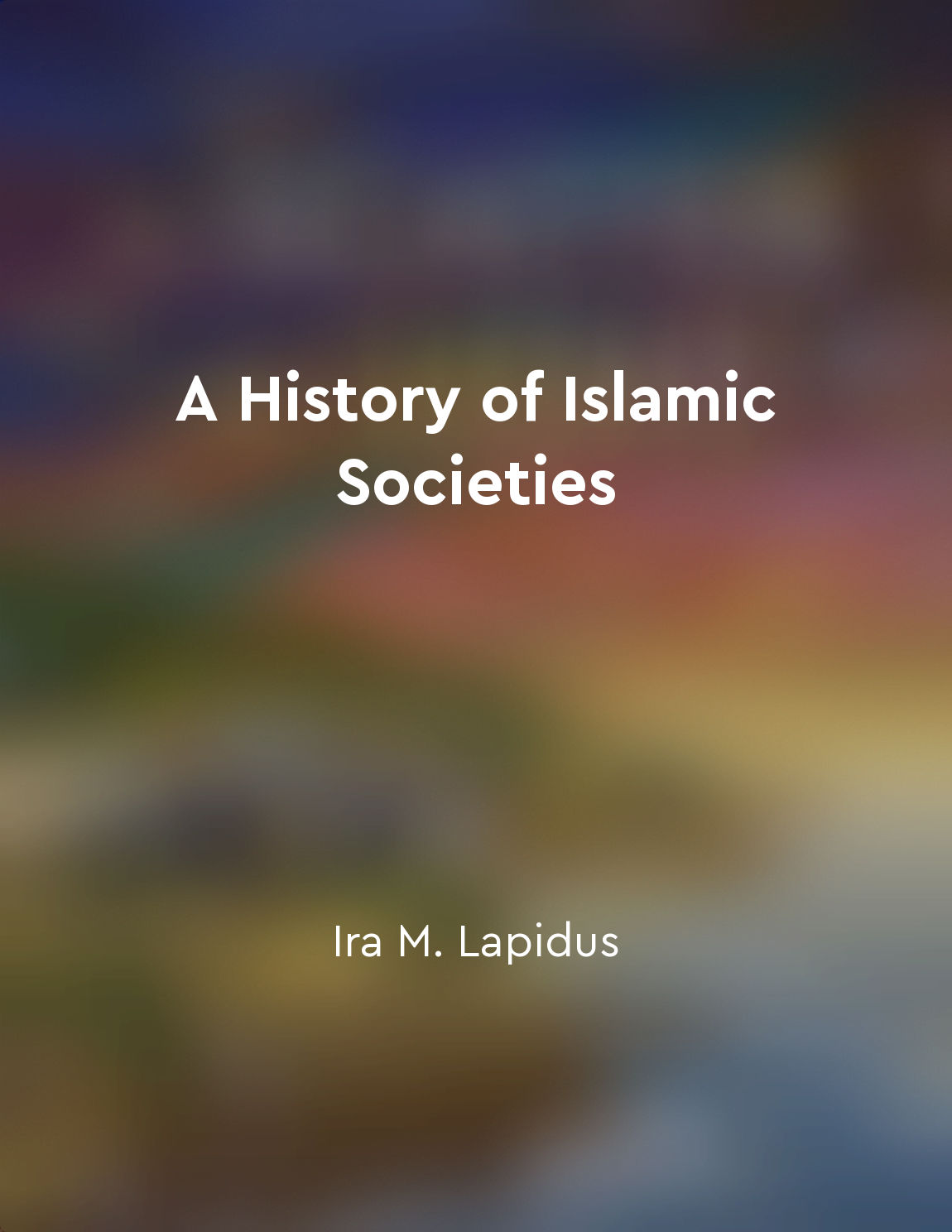Islamic societies had a strong emphasis on education from "summary" of A History of Islamic Societies by Ira M. Lapidus
Islamic societies throughout history have placed a high value on education, viewing it as a fundamental aspect of personal development and societal progress. This emphasis on education is deeply rooted in the teachings of Islam, which encourages the pursuit of knowledge and understanding as a means to achieve spiritual growth and enlightenment. Education was seen as a way to deepen one's understanding of the world and one's place in it, ultimately leading to a greater appreciation of the divine. The importance of education in Islamic societies is evident in the establishment of institutions dedicated to learning, such as madrasas and libraries, which served as centers of knowledge and intellectual exchange. These institutions played a crucial role in preserving and transmitting knowledge from one generation to the next, ensuring that the intellectual heritage of Islamic societies continued to flourish over time. Scholars and teachers were highly respected figures in Islamic societies, revered for their wisdom and expertise in various fields of study. In Islamic societies, education was not limited to religious studies but encompassed a wide range of disciplines, including mathematics, science, philosophy, and literature. This broad approach to education reflected the belief that knowledge was a holistic and interconnected pursuit, with each discipline contributing to a more comprehensive understanding of the world. Islamic societies valued critical thinking and intellectual curiosity, encouraging individuals to question and explore new ideas in their quest for knowledge. The emphasis on education in Islamic societies had far-reaching implications for social and economic development. By investing in education, Islamic societies were able to cultivate a skilled and knowledgeable workforce, capable of driving innovation and progress in various fields. Education also played a crucial role in promoting social mobility, allowing individuals to rise above their circumstances and achieve success through hard work and dedication.- The strong emphasis on education in Islamic societies underscored the belief that knowledge was a source of empowerment and enlightenment, enabling individuals to lead more fulfilling and purposeful lives. By prioritizing education, Islamic societies were able to create a culture of learning and intellectual inquiry that laid the foundation for their intellectual and cultural achievements.
Similar Posts
Quranic guidance can inform scientific research
The Quran, being the word of Allah, is a book of guidance for all aspects of life, including scientific research. It contains v...

Environmental concerns must be addressed in economic policymaking
Environmental concerns must be addressed in economic policymaking. This is a critical point that many policymakers seem to over...
The search for meaning and purpose continued to drive individuals and societies
The quest for meaning and purpose has been a constant driving force in the lives of individuals and societies throughout histor...

Sufism was an important spiritual tradition in Islamic societies
Sufism emerged as a significant spiritual tradition within Islamic societies, offering a unique approach to understanding and e...
Quran promotes critical thinking and exploration
The Qur'an encourages believers to think critically and explore the world around them. It emphasizes the importance of reflecti...
Democracy requires active participation
To fully understand the concept of democracy requiring active participation, we must first delve into the nature of democracy i...

